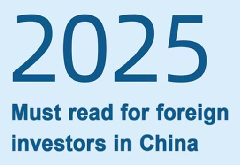General Office of the State Council Issued the Key Tasks for Deepening the Reform of the Pharmaceutical and Healthcare System in 2019
Recently, the General Office of the State Council issued the Key Tasks for Deepening the Reform of the Pharmaceutical and Healthcare System in 2019 (hereinafter referred to as the Tasks).
The Tasks pointed out that it is necessary to take Xi Jinping's Thought on Socialism with Chinese Characteristics for a New Era as the guide, comprehensively follow the policies set forth in the 19th National Party Congress, and the Second and Third Plenary Session of the 19th Party Central Committees, and conscientiously implement the decision- making and deployment of the Party Central Committee and the State Council on Healthy China Strategy and deepening the reform of the pharmaceutical and healthcare system. We will adhere to people-centered health development, to safeguarding basic health insurance, strengthening primary healthcare institutions, and constructing mechanisms covering the bidding and procurement system for essential drugs. Focusing on transforming the treatment-centered development model to a wellness-centered one, we will put prevention first, and reinforce disease prevention and health promotion. Regarding the solutions for low accessibility and high expenditure in health service, efforts shall be made to deepen the interlocked reform of health care, health insurance, and pharmaceuticals, and unswervingly promote the fruition and tangible benefits of healthcare reform for the people.
The Tasks clarified the key work areas of two aspects: 1. Documents to be formulated via research and deliberation, involving 15 documents related to Healthy China Actions; promoting the healthy and regulated development of non-governmental medical institutions; Drug List of welcomed generics; standardizing the use of medical consumables; furthering healthcare reform with the centralized procurement and use of drugs as a breakthrough; medication management in
medical institutions; Internet-based diagnosis & treatment, payments and medical insurance reimbursement; reform of professional title system for health professional and technical personnel; establishment and improvement of the elderly healthcare system; performance evaluation of public health institutions at the Secondary and lower levels; strengthening the management of physician workforce; management of Medical Consortium; reform of the salary system of public hospitals; improvement of employees' medical insurance personal accounts, and supervision over the use of medical insurance funds. 2. Key tasks to be put into practice, involving 21 specific pursuits mainly focusing on addressing low accessibility and high expenditure in healthcare and strengthening hospital management, etc. To address low accessibility of healthcare, the pursuits proposed to promote the construction of national and regional medical centers; orderly develop medical consortia to promote Hierarchical Diagnosis & Treatment; deepen the reform of Streamlining Administration, Delegating More Powers to Lower-level Governments and Society, Improving Regulation and Optimizing Services and support the running of medical institutions by social capital; facilitate the development of Internet + health care; coordinate and promote county-level comprehensive healthcare reform; implement Healthy China Action; and fortify the prevention and control of catastrophic diseases such as cancer. To address high expenditure in healthcare, the pursuits proposed to advance the pilots of State-led centralized drug procurement and use; promote the reform of high-value medical consumables; consolidate and improve the National Essential Drug System; carry forward the reform of medical insurance reimbursement models; improve the compensation mechanism of public hospitals; deepen the comprehensive reform of public hospitals; and actualize in-depth poverty alleviation via healthcare. To strengthen hospital management, the pursuits proposed to unfold performance evaluation in public hospitals and further improve healthcare services, etc.
The Tasks emphasizes that all regions and relevant departments must earnestly strengthen leadership, take effective measures, be brave in taking responsibility and action, and complete tasks on time and in good quality. It is necessary to proactively and fully release information on reform policies, to promote experiences and build consensus on reform. The Tasks also clarified the responsible departments of various reform tasks and put forward time and schedule requirements for the policy documents that need to be formulated.



